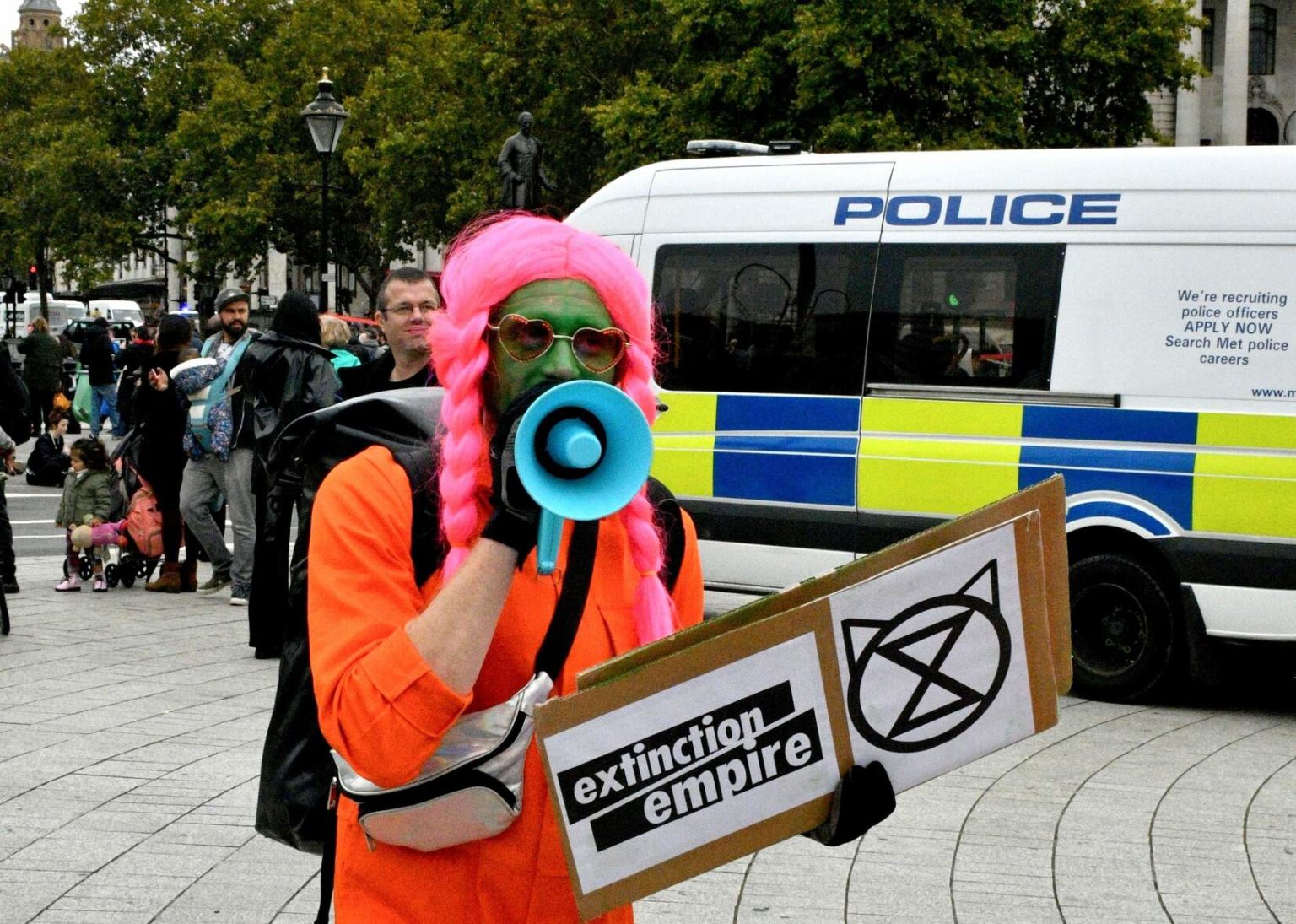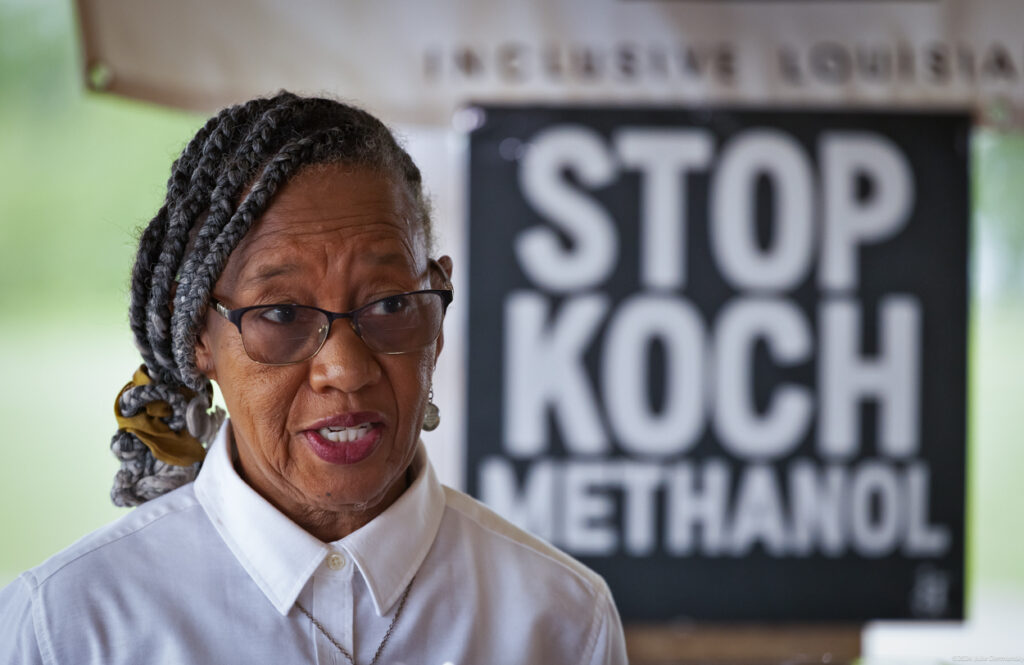Like in so much of public debate, the Prime Minister sets the tone. As a fortnight of peaceful protest started in London, Boris Johnson called the Extinction Rebellion protestors “importunate nose-ringed crusties in hemp-smelling bivouacs” at an event at Banqueting House for the launch of the third volume of an official biography of Margaret Thatcher.
The Prime Minister’s tone was echoed throughout the media as the full force of the state prepared to come down on people peacefully protesting in defence of our future.
Leo McKinstry in The Sun called them “a deranged fundamentalist religion.” “Extinction Rebellion trades in misery and fear, with suffering as the only route to salvation. Filled with loathing for mankind, there is nothing compassionate about this creed. Its activists warn of climate change disaster, but their own policies would lead to chaos, meltdown and mass unemployment,” he said.
McKinstry’s tirade is echoed in the paper’s own editorial, which rather confusingly calls Extinction Rebellion a “Marxist doomsday cult”.
What triggered The Sun? As with many other outlets, who gave ‘XR’ (as they like to be known) the benefit of the doubt earlier this year, it could be the realisation that what is at stake is an economic system. To certain sections of the press, this is an intolerable challenge known to lead to hysteria.
A Telegraph editorial took up the cudgels, resurrecting an old trope of confusing peaceful protest with terrorism: “The right to protest does not extend to acting like a terrorist”, it assured its readers.
Extinction Rebellion explicitly practices non-violent direct action, the principles of which the group trains its activists in. As police arrest people, they chant that “they love the police”. To confuse the actions with terrorism is, well… confusing. Not to mention somewhat irresponsible.
Like our work? Support it by becoming a DeSmog patron today!
Not to be outdone, the Daily Mail wheeled out one of its resident climate science deniers in the shape of Dominic Lawson. Lawson declares that not only are Extinction Rebellion wrong, so too are Greta Thunberg and “29-year-old Congresswoman Alexandria Ocasio-Cortez” (because, you know, they’re all the same) before explaining that climate change is actually a really postive thing:
“What you won’t hear so much about is that a certain amount of warming is, on balance, a good thing for species, including humans.”
He explains: “The key fact to bear in mind is that CO2 is not, in itself, a pollutant; nor detrimental to the air we breathe. The problem for us is the sooty particulates that come out of the exhaust of vehicles powered by internal combustion engines. They really do kill.” Thanks for the anti-science lesson, Dom.
Lawson then goes on to quote his colleague Matt Ridley – an advisor to the climate science denial campaign group, the Global Warming Policy Foundation, founded by Dom’s father – who explains why climate change is actually really beneficial for Africa:
“The decline of famines in the Sahel in recent years is partly due to more rainfall caused by moderate warming and partly due to more carbon dioxide itself: more greenery for goats to eat means more greenery left over for gazelles, so entire ecosytems have benefited,” Lawson quotes Ridley as arguing.
That’s right, the mass destruction of the planet means more goat food. So we’re all good.
Predictably, Brendan O’Neill, the editor of Koch-funded outlet Spiked, joined the fray, calling the protestors that want the government to take action to avoid a mass extinction a “death cult”.
He writes: “These people are a menace to good sense, rationality, truth and progress. Their predictions of hellfire if we don’t cut carbon emissions by 2025 are pure bunkum. They lie and spread fear and disrupt hard-working people’s lives. If you see this cult promoting its deathly propaganda on the streets of your city this week, give them a piece of your mind.”
In an environment where the debate is so polarised, and where language from political leaders and columnists has given rise to violent attacks, that “give them a piece of your mind” hangs somewhat heavy. It’s a dangerous (and deliberate) tone to set.
Read more – Extinction Rebellion: Direct Action to Save the Planet from Climate Change
While most of the media was hostile, The Times took a more balanced line, acknowledging that “there is no doubt that the issue of climate change now has great salience and that Extinction Rebellion is due some of the credit.”
Though it does add: “The investment in new, cleaner technologies is not going to come by government fiat. It is going to come from the private sector. So will the technical ingenuity which, rather more than pious demands that other people take fewer flights, is going to be the way that we can live modern lives and not despoil the planet.” Capitalism and technology will fix our climate crisis, apparently – which will be music to the ears of Boris, who (jokingly or otherwise) seems to reckon nuclear fusion may be the way forward.
Likewise, Leslie Hook in the Financial Times acknowledges that even if XR and the school strikers aren’t perfect, they do reflect what “a desperate moment this is, when children take to the streets and grandparents are barricading the bridges. In an age where gradual actions have fallen short, only radical options remain.”
Put next to these more sober analyses, the level of hysteria in some of the op-eds and commentaries is alarming – and a marked change from Extinction Rebellion’s first set of actions in early summer.
Just as with the attacks on Greta Thunberg, the demonisation of people engaging in peaceful protest over the threats facing our planet is concerning. Their dehumanisation opens the door to scary levels of hostility, which is why all journalists really ought to defend their right to protest, even if they don’t particularly like them.
Image credit: Extinction Rebellion
Subscribe to our newsletter
Stay up to date with DeSmog news and alerts






